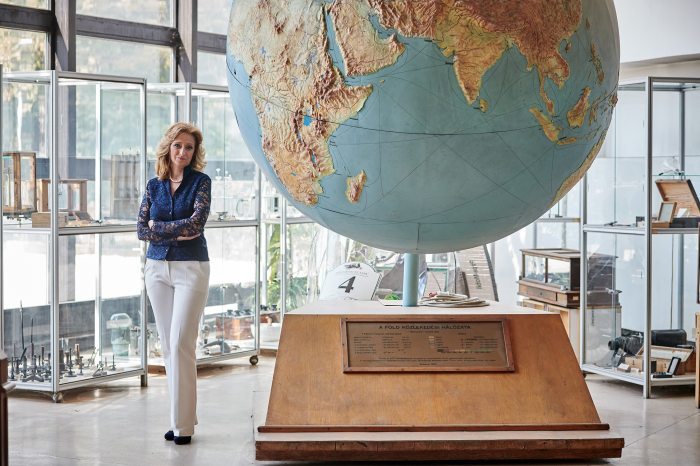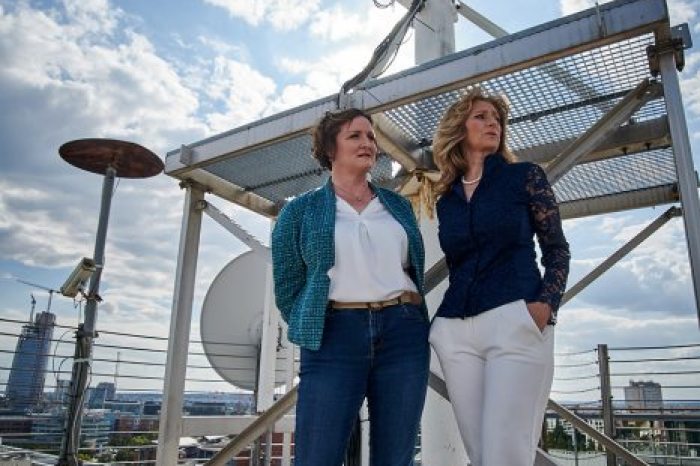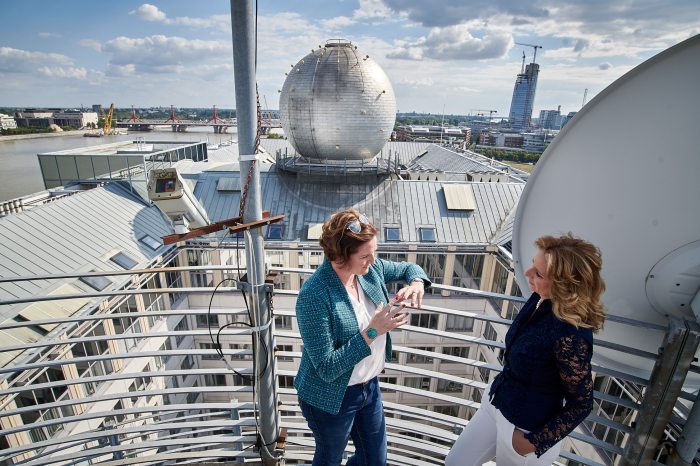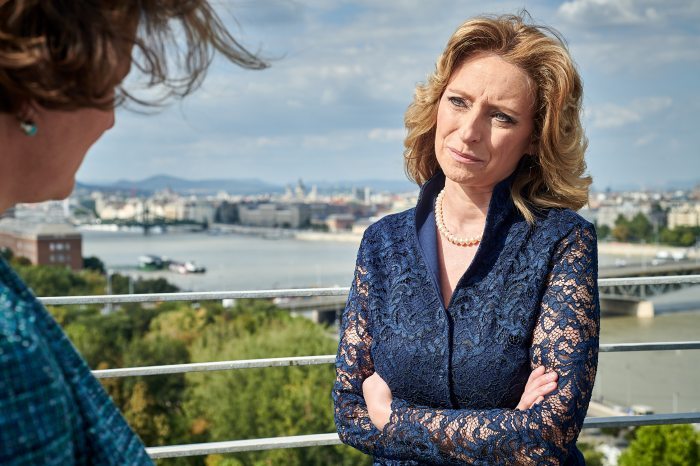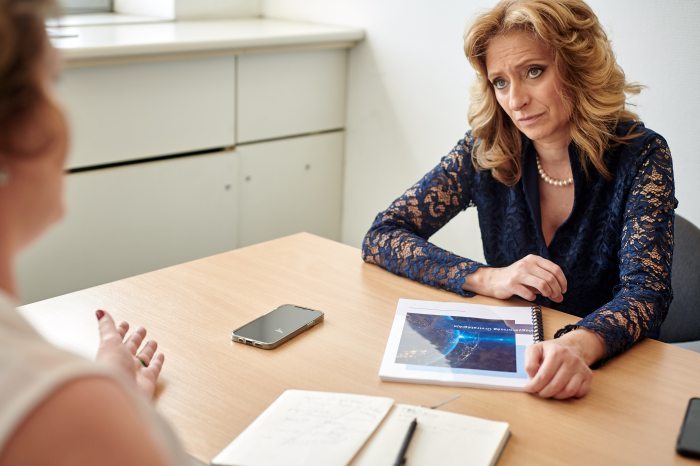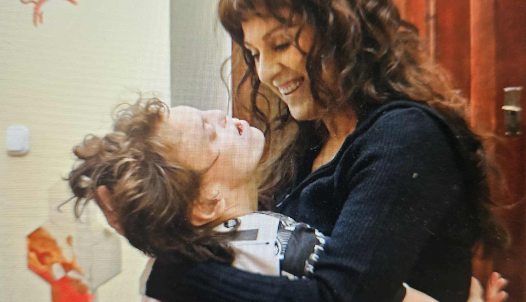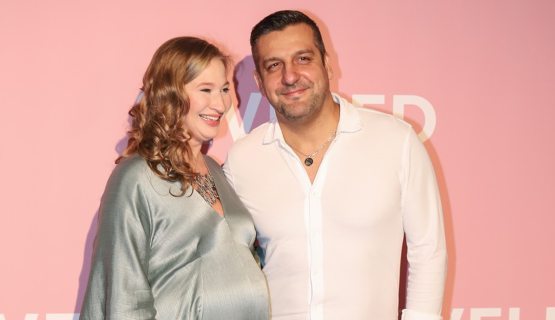What are we doing in space? – an interview with Orsolya Ferencz
It seems as if the Hungarian public received the seemingly exotic news that our country's national space strategy had been completed and that we would be joining the international community's space activities on the basis of it with little bewilderment. What would we Hungarians be doing in space? It's a playground for the big boys, we might think, although it is not romantic wishful thinking but a strategic necessity that is directing our attention to space. Space exploration and its results, dear reader, have a significant impact on your daily life.
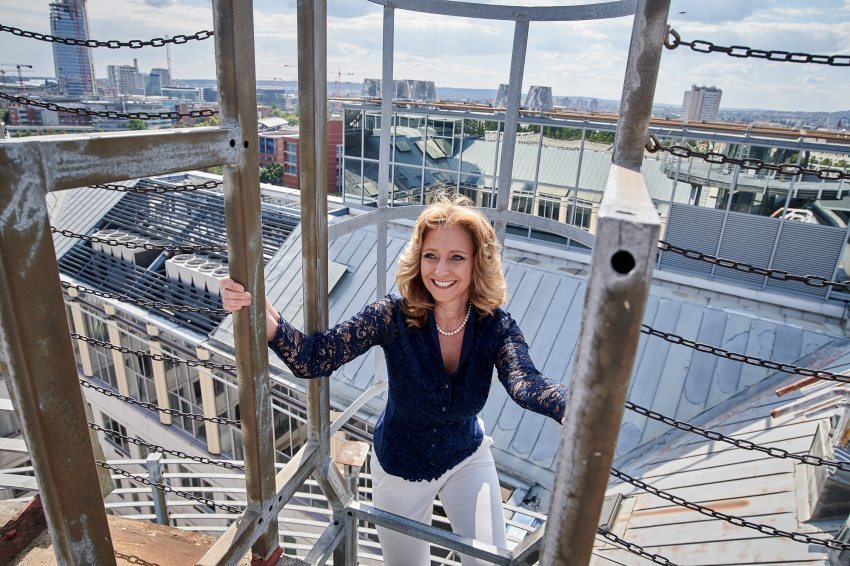
Every household with a mobile phone, every driver who uses GPS, every TV viewer who watches via satellite, uses the results of space exploration. Without space exploration, we would be in trouble producing food, planning transport, or averting natural disasters. We would be at a serious disadvantage in the event of a migration or war crisis. Not to mention banal things like weather forecasts. These phenomena are not in space, but on Earth - because the most important thing to know about space science is that its representatives do not fly around in fancy spaceships in distant galaxies, but use satellite technology to monitor, measure, and support everyday life on planet Earth from space.
The work on the Hungarian space strategy is led by State Commissioner Orsolya Ferencz, a senior research fellow at ELTE Faculty of Science, Institute of Geography and Earth Sciences, who is also the mother of four children. "Mankind has always been interested in the world around it, observing the phases of the Moon, discover the connection with the tidal phenomenon, and being interested in the world beyond our planet. In the history of science, it has taken generations of geniuses to get us to where we are now. The mid-twentieth century saw an incredible revolution in this discipline. Hungary played a role in this from the very beginning."
And indeed: the boundary of space, which is about 100 kilometers above the Earth's sea level, is known around the world as the Kármán Line. According to Wikipedia, Tódor Kármán is the patron saint (if not literally) of the US Air Force, the father of supersonic flight, and a pioneer of rocket technology and hypersonic spaceflight. But we can also be proud of the fact that two Hungarian scientists, Zoltán Bay and Károly Simonyi, were the second in the world to successfully measure the distance between the Moon and the Earth using radar (in fact, they were the first to make the instruments for the measurement, only the Soviet front had passed through Budapest, so they had to recreate almost everything). A good example of how quickly this field developed, how suddenly mankind entered space, is that in October 1957 the first man-made object was put into a stable orbit around the Earth, Sputnik-1, and less than a year later, in 1958, President Eisenhower's Christmas speech was broadcast by satellite.
An industry of inestimable economic and market importance has been born, which we call global broadcasting and communications.
This technological revolution continues to this day. Although we may not be aware of it every day, the devices we put into space have become a vast system of critical infrastructure, the loss or disconnection of which would have a very serious impact on our daily lives.
Orsolya Ferencz also gives a current example: during the pandemic, we naturally and quickly switched to online work, online education, online use of various services - partly made possible by space exploration. Today, there is no longer a choice for individual nations as to whether or not they want to connect to these systems. National space strategies are essential for the present and future of each country. So how come we Hungarians have not had a space strategy so far? – I ask the State Commissioner.
"The national space strategy is a missing piece. It is necessary because no one is admitted to the ESA (European Space Agency) today without one. But it's also important because it was the occasion for complete screening of the related sector, a two-year work. It affects our foreign policy, our economy, our industry, our education, our diplomacy. There is substantive work going on in these areas, but there has not been the kind of coordination that the strategy has now made possible. Fortunately, the knowledge base that we can now build on to catch up with the world in the space industry has been preserved in various scientific workshops and businesses."
"While, for example, Bulgaria or many countries of the former third world, like Rwanda or Bangladesh, have their own satellites, we, Hungarians, have to explain why we need them."
"One of the scientific workshops is the space research group at Eötvös Loránd University‘s Faculty of Science, their specialized training is also ranked high in the world, but Budapest University of Technology and Economics also has a space engineering course, soon to be accredited, and almost all universities in the countryside have related courses, good specialists, and we can also rely on the many institutions of the Eötvös Loránd Research Network. We already have businesses that are wholly or partly based on the space industry. The space furnace for the flight in 1980 was developed at the University of Miskolc, we have retained our related research capability on material science applications in space, and today a company is doing this work, producing thousands of components for the European space industry. But there is also a Hungarian company that is strong in the production of on-board and ground electronics systems and communication equipment. This is a big thing because it is an elite club, few are able to produce so-called space-qualified devices. A good example is the work of Dr. András Gschwindt and his team at Budapest University of Technology and Economics - they are already launching the third so-called pocket satellite. These are not only very tiny satellites, measuring 5x5x5 cm, but they are also equipped with five different instruments, which they use to take measurements, for example, to map electromagnetic smog around the Earth. This is also a major Hungarian achievement, even the European Space Agency did not think it would succeed."
The recently completed national space strategy, led by Orsolya Ferencz, thus first mapped our available resources for a space program of our own, secondly set out the objectives: to exploit the economic and industrial potential of the sector; to train our own professionals as well as ensure the new generation of professionals, from public education to universities; and thirdly, expand international relations and latitude. Our most important partner in all of this is the European Space Agency, ESA, of which we have only been a member since 2015, although we were invited back in 1991.
"For decades, space exploration was seen as an expensive luxury sport, and some political leaders often failed to understand what it had to do with life on Earth"
– explains Orsolya Ferencz. "Today, we are solving a lot of problems directly based on space science results, even in areas we would never think of, such as development of medicines, water and air purification equipment, crop protection and irrigation systems worldwide, transport systems. For example, the International Space Station (ISS) has been used to test the medicine Remdesivir, which has been successfully used to combat the coronavirus. Many previous governments did not foresee that space research would become so important. Although the Antall government wanted to launch an independent space program, the successive administrations ignored the field in a 'dare to be small' mentality. Today, however, it is clear that we would have had an unheard-of advantage: the only way to play good football is to know where the ball is going to be and to run there... Now the subject has been raised again in the context of the action plan for economic protection.
This area of the economy is resilient to social crises such as the epidemic, it does not collapse. Current knowledge and highly qualified jobs attract and keep technology here. We will never build launch vehicles and send them up into space – but if we can make the components, let's do it, let's make ourselves indispensable and important in space exploration. Even today, there are some instruments in which Hungarian dominance is undisputed, for example in the field of dosimetry (radiation measurement) instruments. There are some capabilities that we need because if we do not have them and are always dependent on others, we become vulnerable – broadcasting, for example. Here too we need national sovereignty. In this area, too, we made a serious political mistake in the mid-1990s, and it is now costing us a great deal. The so-called geostationary orbit above the equator is extremely important - satellites orbiting here orbit with the Earth and do not require a tracking antenna system. These are therefore the most valuable orbital segments – which is why the International Telecommunications Union has allocated the right to use this orbit to individual countries. The Horn government, however, has effectively ceded this right of disposal to others for pennies and has destroyed our competitiveness for decades. We are now working to put an independent Hungarian broadcasting satellite into geostationary orbit, a task for the CarpathiaSat company."
The national space strategy also has a big role to play in identifying flagship projects that can accelerate the whole sector to catch up with the others. Orsolya Ferencz, who comes from the world of universities, believes it is vital to develop a coordinated university education that provides the most talented students in this interdisciplinary sector with a complex, multi-faceted education and qualifications so that the scientists in the field will not be confused by the technical, scientific, legal, physiological, medical, economic and diplomatic aspects of space research. We need professionals who can sit down at the international negotiating table prepared and with confidence.
"New and emerging areas of space exploration are unfolding before our eyes. Space resource exploration and space mining, for example. There is a kind of colonization going on – a race for the right to exploit the raw materials in space. There is a small planet in the Solar System that is known to have such a high precious metal content that its extraction would fundamentally disrupt Earth's economies if they were to become a commodity in the cycle. It is not so very far in the future that we will have access to these. It's like the days of the great discoveries. It is not us who launches the 'three-masted sailing ships' that will explore the new world – but we might have our doctor, our onboard engineer, our chemist, our digital instrument on board. If that were the case, we would have an economic advantage. We work with the unknown – that's ESA's motto: "Working with the unknown." Only people with vision can enter this field, both in terms of science and political leadership. Such a scientist is Katalin Karikó, who, despite all the opposition and humiliation, stuck to what she believed in because she had a vision. Her perseverance should be an example to all scientists. It's no coincidence that the best science fiction is written by good engineers because today's imagination gives birth to tomorrow's reality."
Képmás magazine is launching a new series called Public Treasure, in which Kata Molnár-Bánffy, the publisher of Képmás, talks to dedicated people whose successful work can be of interest to many, and is a Public Treasure, as the title of the series suggests: a common issue, something we want to take care of.
